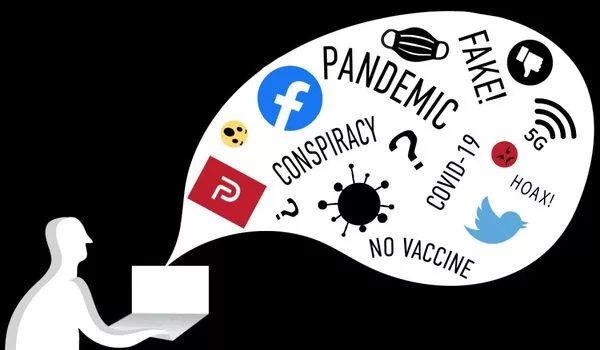Bullying in the workplace can cause anxiety, paranoia, and hypervigilance to threat in victims. These factors are also linked to conspiracy theories.
According to new research, people who have experienced workplace bullying are more likely to engage in conspiracy theorizing. The new study, led by the University of Nottingham and conducted in collaboration with Paris Nanterre University, is based on the idea that bullying experiences may breed conspiracy beliefs because both are associated with similar psychological factors, such as paranoia. The findings were published today in the journal Social Psychology.
Conspiracy theories are defined as “explanations for significant events involving secret plots by powerful and malevolent groups,” which can range from scientists and doctors to the boss at work. This new study expands on previous research showing that life experience can increase susceptibility to conspiracy theories and investigates the theory that hostile workplace experiences can lead to the development of conspiracy beliefs.
We saw how conspiracy theories could take hold and spiral during the COVID-19 pandemic, with many circulating and gaining traction, particularly around vaccinations. Our research demonstrates how conspiracy theories can mobilize people in ways that are harmful to the functioning of a society.
Dr. Jolley
The research was led by Dr. Daniel Jolley, Assistant Professor in Social Psychology at the University of Nottingham, who stated: “Bullying experiences can have a negative impact on the victim in a variety of ways, including the development of conspiracy theories. We believe that victims of bullying may find conspiracy theories appealing because bullying experiences frustrate the exact psychological factors that lead to conspiracy beliefs, such as disempowerment.”
Two studies were conducted. The first study looked at 273 people’s experiences with a variety of negative acts and found that workplace bullying was positively associated with conspiracy beliefs. People who have experienced workplace bullying were also more likely to report increased feelings of paranoia, which is associated with a higher endorsement of conspiracy beliefs, according to the findings.

In the second study, 206 participants were asked to imagine being bullied at work or being positively supported at work. Those who imagined a bullying environment were more likely to believe in conspiracy theories.
Dr. Jolley goes on: “We saw how conspiracy theories could take hold and spiral during the COVID-19 pandemic, with many circulating and gaining traction, particularly around vaccinations. Our research demonstrates how conspiracy theories can mobilize people in ways that are harmful to the functioning of a society. This is why understanding how conspiracy theories emerge is critical. We can develop solutions if we can get to the bottom of what factors influence them. We recommend that the next steps be to create tools to assist victims in order to prevent the link between bullying and conspiracy theorizing from forming.”





